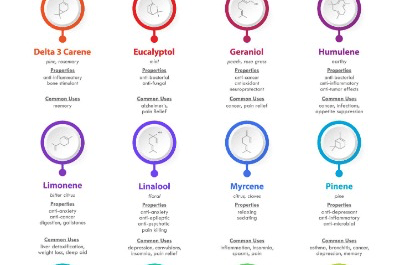This information was provided by Benzinga
By Natan Ponieman
October 26, 2021
Cannabis is becoming universally known as a mood enhancer and anxiety-reducing substance.
However, the plant notoriously lacks clinical research to inform its safe and correct use in specific psychiatric disorders like anxiety and depression.
A new study published last month is shedding light on the plant’s therapeutic potential.
While a bipartisan group of federal lawmakers only recently introduced a bill to remove federal barriers for conducting research on marijuana, researchers have come up with creative ways to study the plant’s effects on the general population by conducting observational studies.
The paper, published in the peer-reviewed journal, Frontiers In Psychiatry, found that medicinal cannabis use was associated with lower self-reported depression as well as decreased anxiety in adults. The research was conducted by Johns Hopkins University in association with the Realm of Caring Foundation.
An Observational Study On The Effects Of Cannabis In Anxiety And Depression
The research team conducted an observational study in which 538 participants over the age of 18 completed a series of surveys around their cannabis use and associated symptoms.
All participants included in the study had reported having anxiety or depression disorders, including major depressive disorder, postpartum depression, dysthymia, premenstrual dysphoric disorder, seasonal affective disorder, generalized anxiety disorder, panic disorder, social anxiety disorder or agoraphobia.
Of the total, 368 participants reported current use of medicinal cannabis products while the remaining 170 were considering the use of medicinal cannabis, but had not started yet. The latter group was used as a control group.
The surveys included validated self-reported questionnaires and investigator-developed measures of health outcomes.
Cannabis use was analyzed by indicating product type (dried flower, hemp extract oil, etc), chemotype (THC-dominant, CBD-dominant, and balanced THC:CBD ratio), dosing regimen and mode of administration.
The result? “Medicinal cannabis use was associated with lower self-reported depression,” according to the study.
Medicinal cannabis users also reported superior sleep, quality of life and less pain on average.
Users who initiated medicinal cannabis treatment during the follow-up period reported having significantly decreased anxiety and depressive symptoms – an effect that was not observed in patients in the control group who never initiated cannabis use.
The study concluded that medicinal cannabis use may reduce anxiety and depressive symptoms in clinically anxious and depressed populations.
Since the study relied on self-reported data, future placebo-controlled studies are necessary to replicate these findings and to determine the route of administration, dose and product formulation characteristics to optimize clinical outcomes, concluded the paper.
The study’s population also was not universal; it consisted of mostly Caucasian female adults. Research into broader populations sample is also vital to better understand the effects of cannabinoids in these indications.



